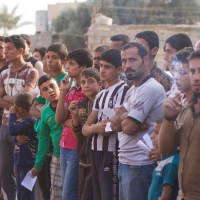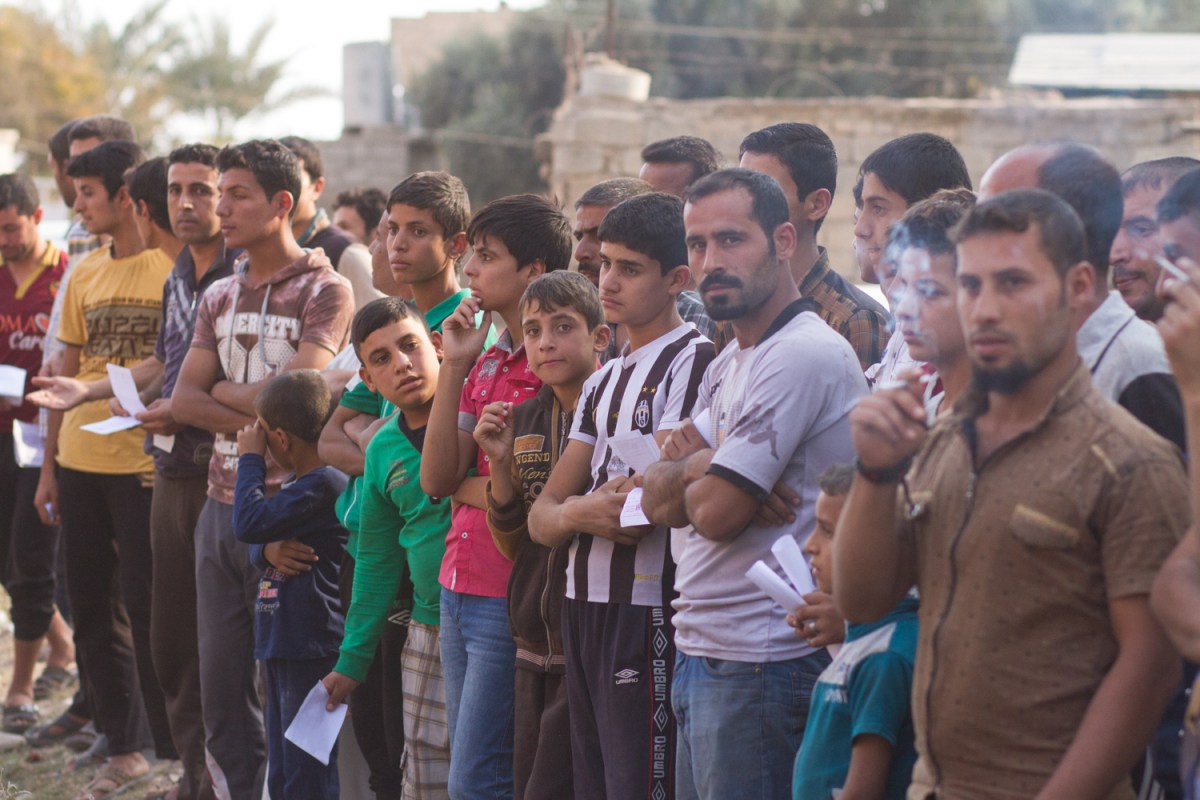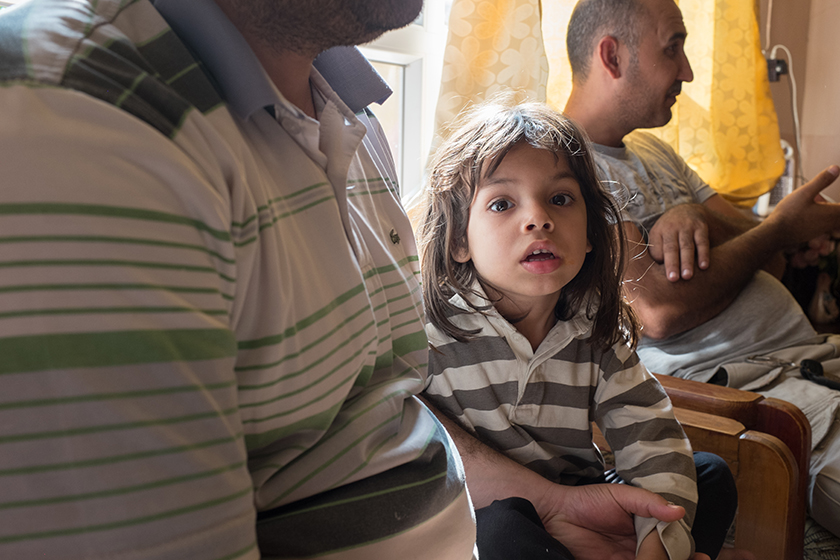
Often it’s not a single tragedy that crushes a life. It’s the everyday indignities—month after month, year after year—that grind you down.
“We were brought 100 years backward, so we don’t expect to move forward so fast.”
Qaa’ed’s father spoke the words, and each head in the room nodded in agreement. Qaa’ed, wearing a striped shirt like his dad, was perched on his father’s lap, taking everything in. He spent more than half his young life living under ISIS control. It couldn’t help but form how he understood the world.

We were gathered in a darkened room with Qaa’ed’s family, filling the couches that lined two walls, neighborhood kids spilling over onto the floor. The curtains were parted just enough for us to see each other.
This was the home of a beautiful family in Zawya, Iraq, a small village that, at the time of our visit, was newly liberated from ISIS. Militants had been driven out just two days earlier. In this home, the only thing that poured out faster than the tea was the stories.
Zawya didn’t experience the mass tragedies we hear about so often in other parts of Iraq and Syria. There was no mass genocide here, no mass graves. And while ISIS fighters were definitely an oppressive occupying force, they were not the “Hollywood-style evil enemies” that we see in some of their propaganda videos.
Zawya was a normal village that woke up the morning of June 10, 2014 to find ISIS in their streets and that everything had changed.
Life under ISIS looked different in several ways…
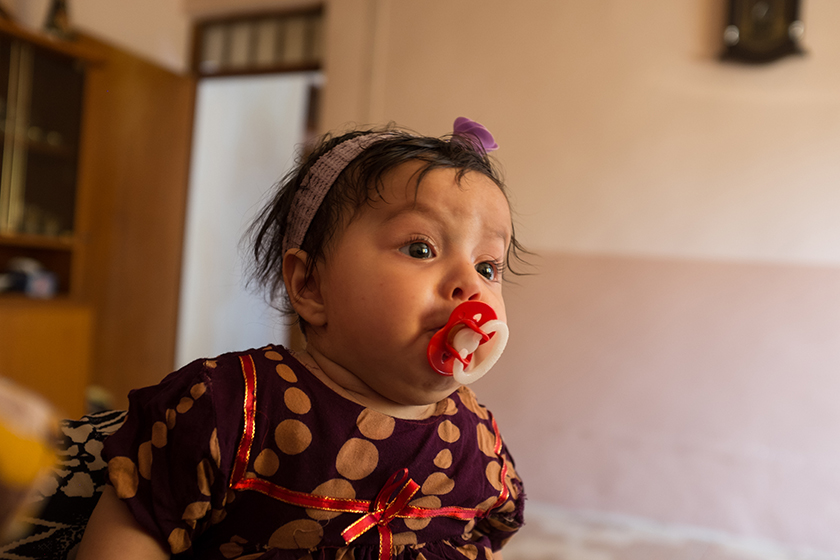
Helplessness
The residents of Zawya saw what happened in a neighboring village when residents actively fought against ISIS. Villagers killed the highest ranking ISIS member—and in retaliation, ISIS fighters came and slaughtered many from the community.
Zawya learned they couldn’t risk fighting back. They had to wait, for as long as it took, for someone from outside to liberate them.
Isolation
No cell phones. No internet. Being caught with a cell phone was a crime punishable by death under ISIS—an effective means of control in a landscape like Iraq.
Residents buried their phones and SIM cards in their gardens, wrapped tightly in plastic bags, rather than hand them over to ISIS. Soldiers often came to interrogate anyone they suspected of having a phone, tearing the house apart to find it. But no ISIS member thought to pick up a shovel.
Being without a phone or the internet meant that the residents of Zawya, like the residents of every community ruled by ISIS, were totally cut off from the world. They got no outside news, no news of their loved ones—they only heard what ISIS chose to tell them.
No phones also meant no family photos during the years of occupation, since most residents relied on camera phones to capture their milestone moments. Under ISIS rule there were no baby pictures, no wedding pictures.

In a way, it’s like those years were lost.
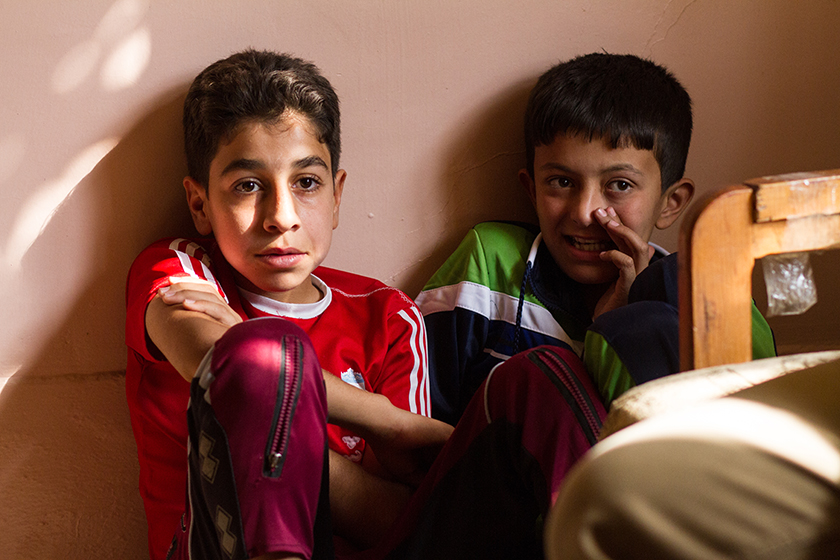
Poverty
The luckiest residents had good jobs and savings before ISIS took control of their town. But under ISIS rule, the economy slowed to a crawl. Civil servants, previously paid by the Iraq central government, went without pay as the government feared salaries would fall into ISIS hands. Teachers stayed home instead of working, so they didn’t have to teach ISIS’ curriculum of hate.
For residents who weren’t so lucky to begin with—those with lower paying jobs and no savings—two years without work was harrowing. They slowly sold off possessions to get enough money to buy food. By the time Zawya was liberated and you arrived with trucks full of food, some families had sold everything including the windows and doors out of their homes—cheap plastic sheeting was the only thing protecting them from the outside world.
Loss of personal autonomy for women
Women rarely left their homes during ISIS rule in Zawya. It was rarely worth the hassle. They had to have a “good reason” for being outside their home, they had to be accompanied by a male relative, and they had to be completely covered in black from head to toe—including their face, hands, and feet.
One of the women in the family we met with told a story of going out to shop, and wearing a outer covering that had a tiny bit of yellow trim on the edges of the sleeves. She recounted in vivid detail just how much trouble she got into for that “shocking display.” Enough time had passed that she could laugh about it as she told the story. But her weariness from living under such tight controls was visible.
Lingering effects, seen through the eyes of young Qaa’ed
Any parent can tell you that children absorb everything they hear around them. Young Qaa’ed was no exception. Whenever he saw his mother get ready to go outside, his reaction was the same—he immediately reminded her to cover completely.
“Don’t forget your gloves!” He was so afraid that his mother would get into trouble with the ISIS militants, that he’d taken onto his very small shoulders the responsibility of his mother’s safety. He is a good son, but no four year old should feel that kind of burden.

There were many villages and towns where ISIS was an oppressive presence, but not always a catastrophic one. Then there were the many places where ISIS inflicted untold devastation on the local community. The truth is, we will only know the full extent of the damage caused by ISIS when all the kidnapped women and mass graves are accounted for.
But slowly, ISIS continues to be pushed back. Even in Mosul, their trophy city, they only hold a third of the city now. Slowly kids like Qaa’ed are learning a different way to live. And their parents couldn’t be happier.
Help us continue to show up for families trapped under ISIS.

